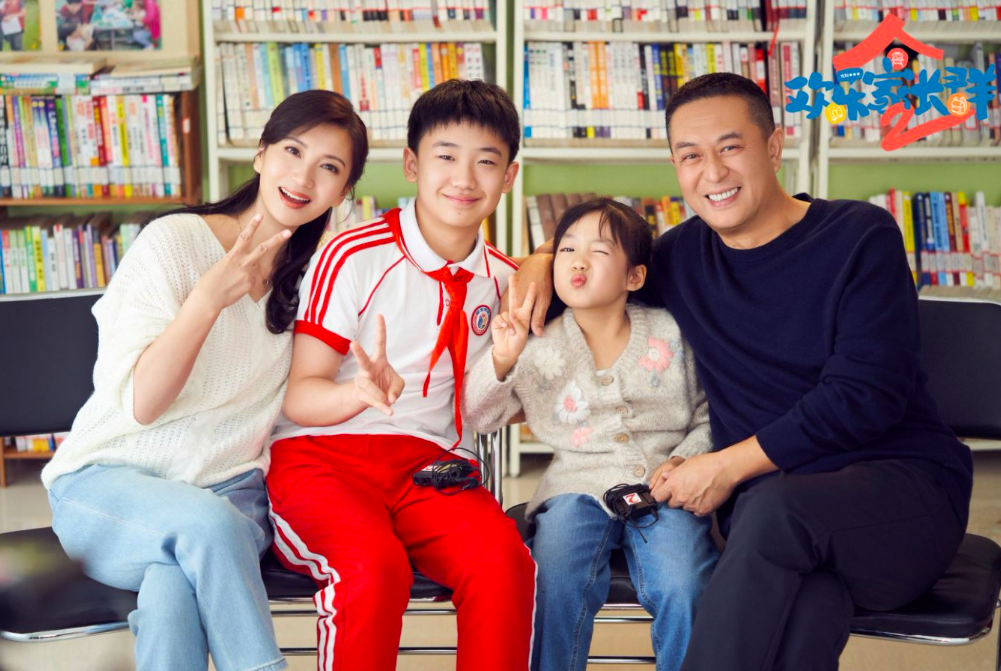
The urban drama "Happy Parents Group 2" uses the micro-entry of a "parents' group" to reflect the educational anxieties, intergenerational communication, and shared growth of contemporary Chinese families, while also retaining the lighthearted entertainment of a family drama. The series recently concluded, and a seminar was held afterward.
At the meeting, the creative team gathered together to unravel the mystery and share their insights on the creation of the drama.

Stills from "Happy Parents Group 2"
Six months after the first season of "Happy Parents Group" ended, executive producer Ren Shuangyou stumbled upon a surprising phenomenon: the show consistently ranked high on China's IPTV on-demand charts every week, competing alongside classics like "Journey to the West" and "Dream of the Red Chamber," as well as currently popular dramas. This "long-tail effect," continuing a year and a half after its premiere, was something he had never encountered before in his career.
Even more unexpected was the audience demographics. They initially thought the core audience would be parents aged 31-41, but the data pointed to an unexpected group – female college students. These students spontaneously became the main force behind the show's spread on platforms like Douyin (TikTok), expressing that it felt real and relatable, "like living in someone else's home." This recognition from a young demographic with high aesthetic standards encouraged the creators, leading to their determination to produce a second season.
Screenwriter Ma Guangyuan shared that the inspiration for "Happy Parents Group 2" came directly from his real life after joining a parents' group in 2021. This "mini-society" that he pinned to the top of his chat list was full of endless material—from being asked to buy a printer late at night to being notified at 8:30 pm to prepare white sugar and oranges, these real experiences became the most vivid details in the script. Ma Guangyuan admitted that he only needed to ask about interesting things at school on the way to pick up his daughter, and he would have the script material for the next day.

Actresses Wang Xiaochen and Ling Zi shared their insights into their roles. Wang Xiaochen plays Tang Xiaowei, a single mother who faces life's mundane aspects with optimism and resilience, embodying the independence and strength of contemporary women. She frankly stated that this character is not only a story but also a true reflection of people around her, and she felt a deep connection to the script upon reading it. In the drama, the everyday chaos of life is transformed into joy and healing, allowing the audience to see solutions amidst the trivialities, and also providing the actresses with a sense of self-healing.
Ling Zi's character, Jing Tingting, faces multiple challenges: welcoming a new life, postpartum emotional and physical fluctuations, her husband's career crisis, and resolving family conflicts. Through her performance, she showcases the character's growth trajectory from gentleness to independence and the gradual development of her personality. Ling Zi emphasizes that Tingting's growth is a microcosm of the mutual progress between adults and children; when facing difficulties, she always responds positively, conveying a genuine and warm strength.
Ma Guangyuan shared that some viewers experienced "withdrawal symptoms" after the series ended. This means that viewers were deeply immersed in the heartwarming atmosphere created by the series and felt a sense of loss and emptiness after the story ended. In his view, this is the highest praise for a family drama that avoids melodramatic plots and focuses on warmth and everyday life.
Li Jingsheng, a researcher at the China Radio and Television Art Data Research Center, believes that "Happy Parents Group 2" restores the traditional style of classic light comedies and episodic dramas such as "Home with Kids" and "I Love My Family". In the current anxious social atmosphere, it relieves pressure in a humorous and warm way, which proves the innovative value of combining traditional style with new life. Yang Hongtao, a professor at the School of Drama and Film of the Communication University of China, resonates more with the performance of the child actors. He believes that they do not rely on skills and complement the powerful actors who play the parents, jointly supporting the family portrait.
Li Xingwen, vice chairman of the China Federation of Literary and Art Circles, believes that from the perspective of genre innovation and creative style, the series interweaves the themes of adults as parents and citizens, and children as students and parents, creating a dynamic that is both independent and interconnected. He also offered feasible suggestions for the series' creation: As a seasonal drama, the series has established a stable format; it could try a "Chinese drama" style, attracting younger audiences with more concentrated scenes, stronger comedic elements, and a faster pace, while continuing the "dual-age narrative" to further explore niche groups such as young/middle-aged parents, thus expanding the age range of family dramas.